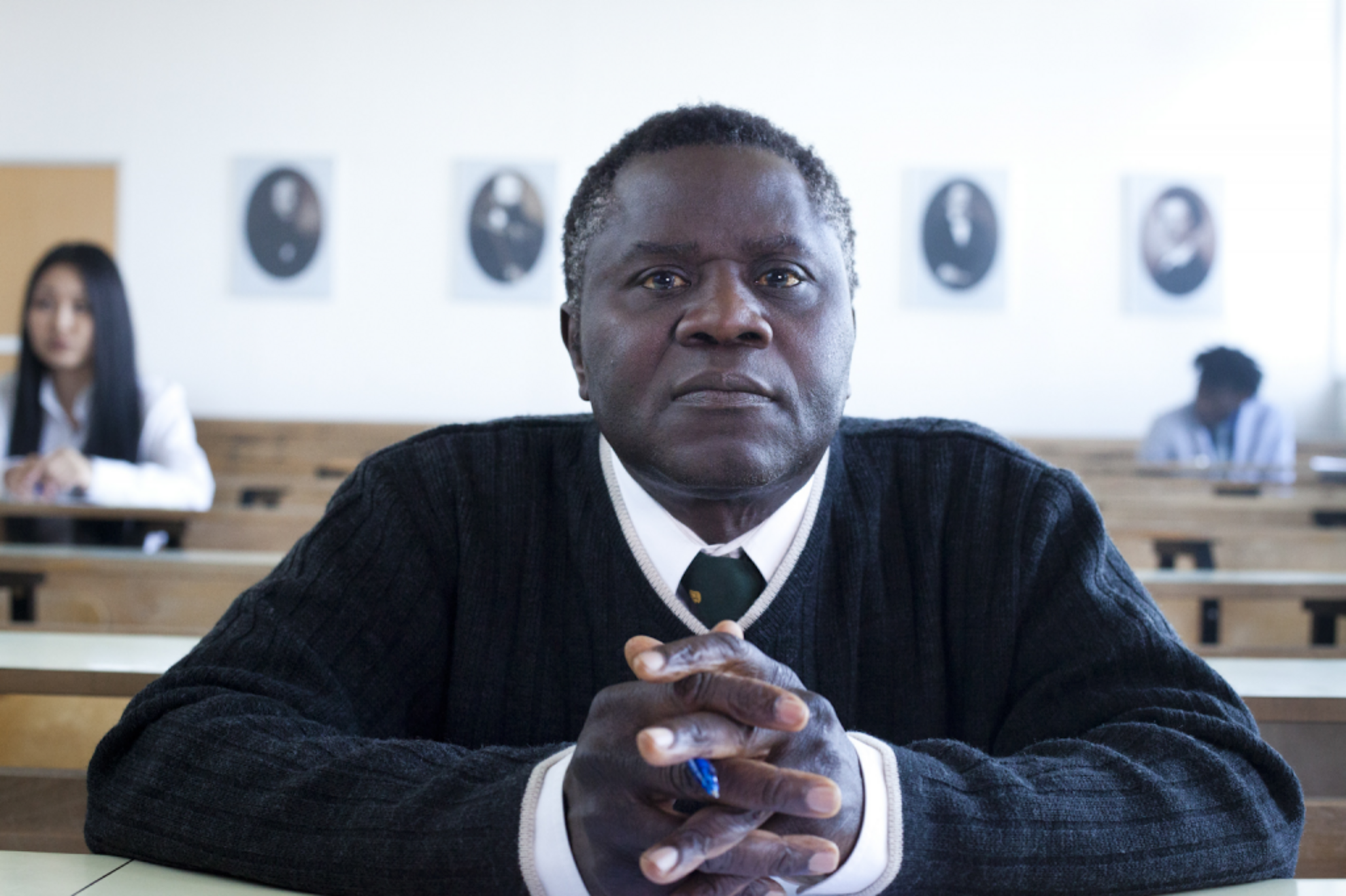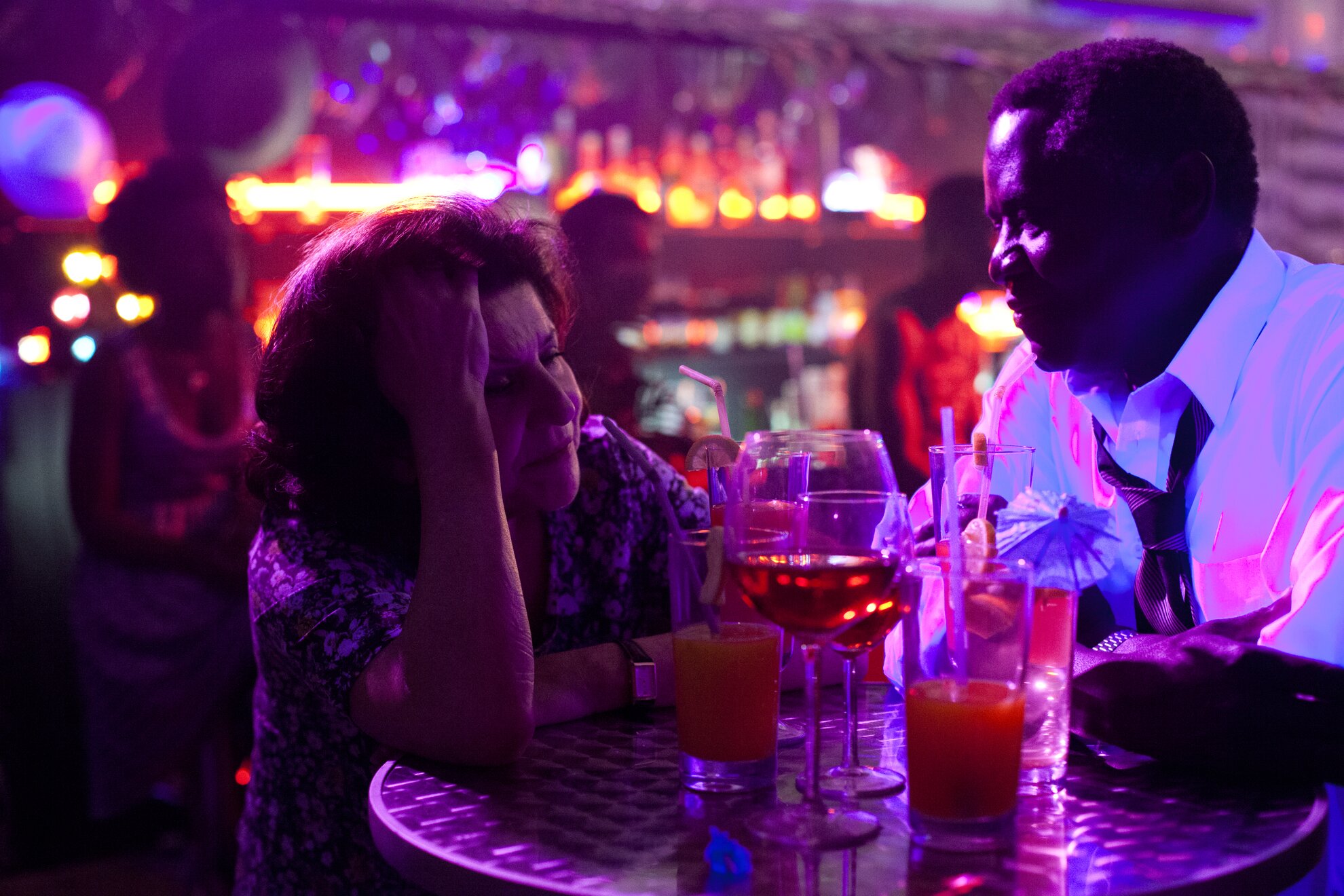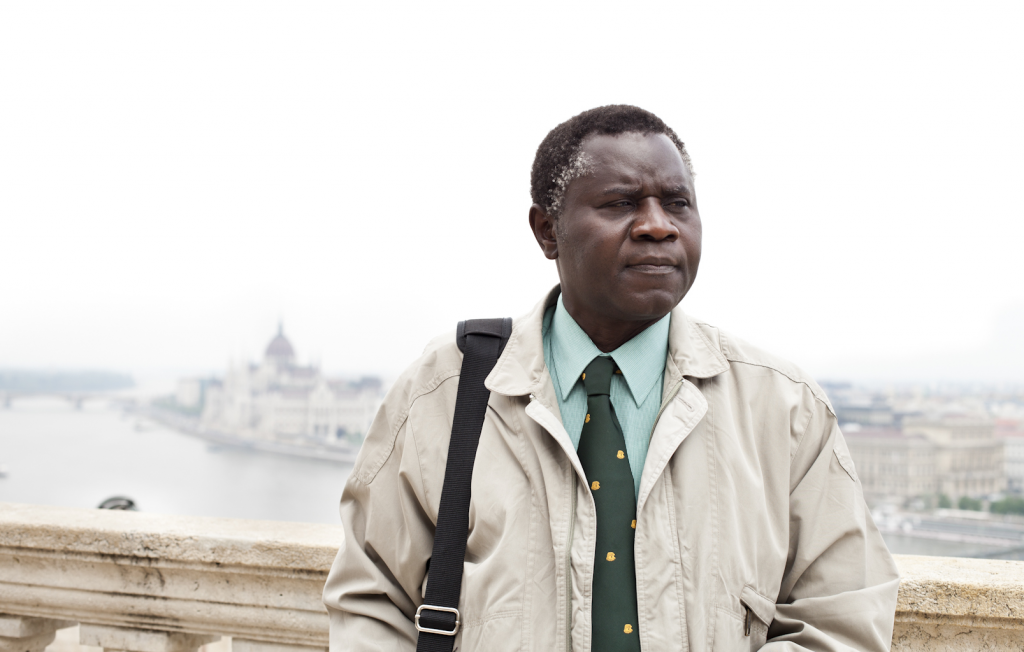As Europe’s ongoing refugee crisis continues to be a major topic in the news, a new film by award-winning Hungarian director Roland Vranik tackles Hungary’s approach toward migration, while also presenting an unusual love story. Since this is a very sensitive subject that is prone to stirring up controversy and conflict, a movie about migrant issues could end up losing its appeal to instead present a message – however, after watching an early press screening of “The Citizen” (which debuts in cinemas on January 27th), we can wholeheartedly recommend this film as thought-provoking entertainment.
The heart-wrenching story of The Citizen begins with a citizenship exam, where the examination committee rigorously questions a middle-aged African man. No matter how beautifully he recites Hungarian poetry, Wilson, a political refugee in his late fifties, fails the exams for the umpteenth time, because he doesn’t know where the periodical ‘Magyar Közlöny’ got its name from, and what the Corvinae are. Moreover, inspired by Vörösmarty’s poem, the committee chairman even questions his reasons for leaving his mother country. Wilson argues that his reasons include his fellow citizens cutting pregnant women in half, yet he doesn’t manage to soften the heart of the committee members.

Working as a security guard, Wilson doesn’t give up, and decides to take private civics lessons from Mari, a teacher specializing in Hungarian history and culture. The two fall in love, and Mari abandons her marriage to move into the man’s apartment. However, she’s not the only woman living there – Shirin, an Iranian girl who escaped from Hungary’s refugee camp in Bicske, has been living there illegally for months, and gave birth in the small bedroom, with the assistance of Wilson. She had to leave her country because of the unwanted pregnancy resulting from an extramarital relationships, which would be punishable by death in her native country. Shirin’s only chance is to get married to Wilson, thus rising the stakes in his struggle for Hungarian citizenship.So much for the story – we can’t tell you more without running into spoilers. The questions are given: 1. Will Wilson succeed in the exam, 2. Will Shirin’s hopeless situation be resolved, 3. What will come of the unusual relationship between a Magyar teacher of retirement age who left her family, and a black refugee?

While the romantic scenes feature some awkward dialogue and stares, this minimalist, sensitive film, full of small gestures and symbols, manages to engage the attention of its audience, and Wilson’s point of view puts Budapest and Hungarians into a whole new perspective. The scenes of foreigners learning about Hungary and the Hungarian language include several humorous exchanges that may be familiar to foreigners living here – for example, Wilson is more informed about Hungarian icons than Mari, and has rather unusual opinions about Hungary’s founder, Saint Stephen. The film raises some questions about national identity as well, but never gets overly wrapped up in the matter.

After the first third of The Citizen (‘Az Állampolgár’), migration and integration are no longer the central themes, but instead provide the background to the slowly unfolding love story. What contributes the most to this is the acting work of Ágnes Máhr, playing Mari, which is emotional in a rather unorthodox way. The sexuality of aging women is an even greater taboo than a woman leaving her family, and it was indeed unusual to see the fulfillment of the love between the middle-aged Mari and graying Wilson. The film is reminiscent of Fassbinder’s film from 1973, Ali: Fear Eats the Soul, but the stereotypical setup also reminded us of a film that examines business between retired, rich Austrian ladies and male prostitutes in Kenya, Paradise: Love from 2011.

Meanwhile we get a strong image of the functioning of alien policing and bureaucracy, accepting and xenophobic Hungarians, and even home births. In a sort of textbook-ish way, the press and public prejudices get a slap as well, but the proportions are fortunately not heavy-handed. The storytelling doesn’t lose sight of its goal: to focus on the individuals’ lives instead of preaching, and so it doesn’t even try to provide answers to sensitive social and political questions.

Interestingly, the amateur actors practically play themselves: Dr. Cake-Baly Marcelo, playing Wilson, came to Hungary as a refugee from a tiny village in Bissau-Guinea, escaping from civil war. Here he earned a degree in economics, married a Hungarian woman, started a family, and now works as a traffic controller and tram driver in Budapest. Arghavan Shekari, playing Shirin, formerly worked as a fashion designer and came to Hungary from Iran a few years ago; today, she works as a kindergarten and yoga instructor, and ironically enough, was granted Hungarian citizenship during the shooting of the film.Although they don’t have experience in acting, their presence and character makes up for it, and they succeed in giving personalities and unique stories to those who are feared by many, and referred to as “migrant” – a word with an increasingly negative undertone in Hungary. After a sneak-preview screening with English subtitles on January 20th at 7pm at Budapest’s Cinema City Allee, The Citizen will have its national premiere on January 26th; we are more than looking forward to the reaction of the Hungarian audience.




